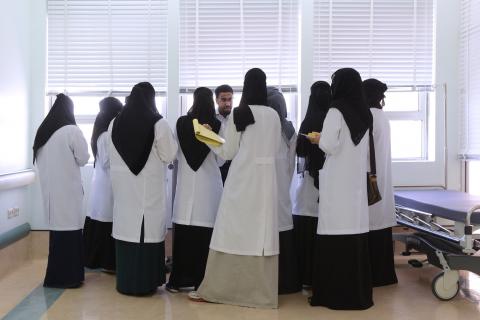Overview

The Department of Surgery was established in 1975 as one of the first clinical departments of the College of Medicine. It was a composite department made up of all the main surgical specialties including anesthesia. However, by 1984 the independent departments of ENT, Ophthalmology, Orthopedics, Neurosurgery, Anesthesia, and Urology were established. The department then became the well-defined entity known as General Surgery and has since encouraged and promoted the development of pediatric surgery, plastic and reconstructive surgery, and developed special interests in proctology, endocrine, thoracic, vascular and minimally invasive surgery.
Mission
The department will:
- Ensure effectiveness of pediatric and neonatal surgery services to the community.
- Diversify in order to meet the expectations of the community and academic needs of the College of Medicine and those of Imam Abdulrahman Bin Faisal University.
Goals
- Excellence in teaching, training, patient care, community service, education and development of competent surgical manpower for the country.
- Provide comprhensive surgery education to medical students.
- Train residents.
- Encourage research in the field of surgery.
Undergraduate Courses
Surgery I (MDSG 452)
On successful completion of this course, the student should be able to:
- Interpret clinical situations correctly and provide rational diagnosis with or without the help of investigations.
- Make a comprehensive list of the patient problems and a list of specific investigations to aid diagnosis and further management.
- Understand procedures needed, preparation of the patient for such procedures and their side effects, interpret the results of radiological and laboratory investigations.
- Appreciate that sophisticated investigations are no substitute for clinical acumen.
- Describe in a given clinical situation the principles of treatment and after care.
Surgery II (MDSG 602)
On successful completion of this course, the student should be able to:
- Understand and recognize the value of para-clinical investigations, specimens needed, preparation of the patient for such procedures and their side effects.
- Demonstrate professional competence and maturity which would qualify him/her to sit the final certifying examination and join the internship.
- Demonstrate effective and proficient communication with peers and the medical community at large.
- Handle patients with care and modesty.
- Respect the tenets of Islam as well as the sanctity of life.

